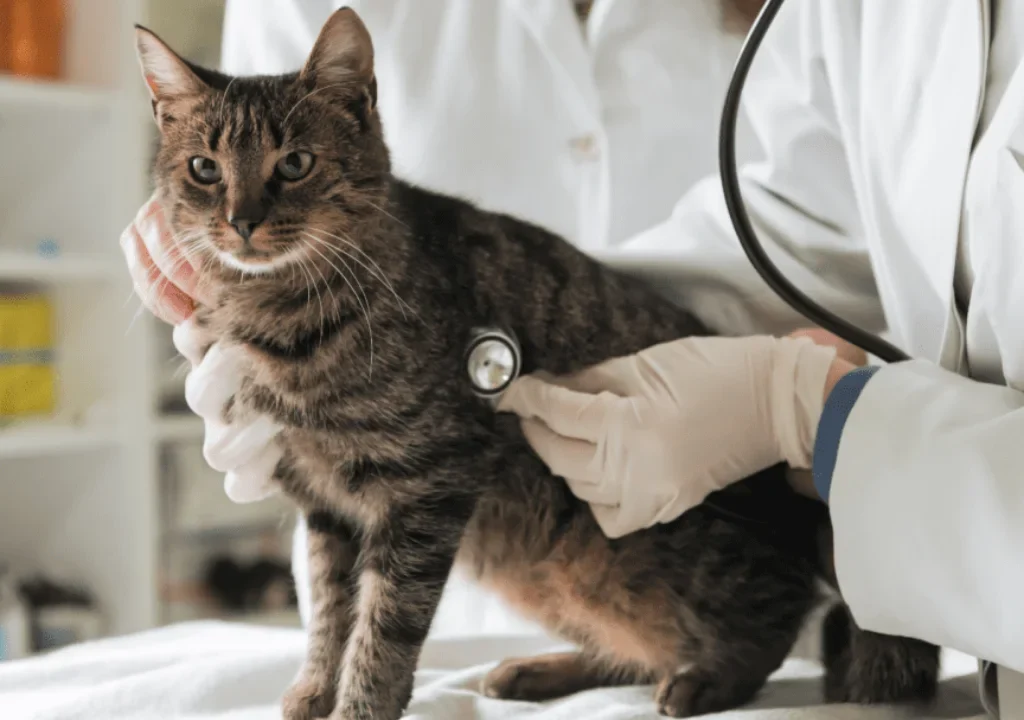
Providing proper vet care for cats is essential for a happy, healthy feline life. Whether you’re a first-time cat owner or a seasoned pet parent, understanding how to care for your cat with regular vet visits and preventive steps is key to avoiding illness and catching issues early.
1. Why Routine Vet Care for Cats Matters
Regular veterinary care helps detect diseases early, improve lifespan, and maintain overall quality of life. Cats are experts at hiding symptoms—making preventive care even more crucial.
Routine checkups allow vets to:
- Monitor weight, heart, and respiratory health
- Spot dental issues and parasites
- Update vaccines
- Guide nutrition and behavioral health
2. How Often Should Cats See the Vet?
General Guidelines:
- Kittens: Every 3–4 weeks until 16 weeks old
- Adult Cats (1–7 years): Once a year
- Senior Cats (7+ years): Every 6 months
Cats with chronic conditions may need more frequent visits. Indoor cats still require regular care, even if they don’t venture outside.
3. Kitten Vet Care Schedule
Kittens require a structured vet care routine:
- First exam: 6–8 weeks old
- Vaccines: Core series starts at 6 weeks, boosters every 3–4 weeks
- Deworming and parasite control
- Spay/neuter: Usually between 5–6 months
Microchipping and early socialization are also recommended.
4. Adult Cat Vet Visits
Annual visits include:
- Physical exam
- Weight tracking
- Vaccination boosters
- Dental assessment
- Flea/tick and deworming recommendations
Behavior changes like hiding, aggression, or vocalization should also be discussed with your vet.
5. Senior Cat Vet Recommendations
As cats age, they become more vulnerable to chronic conditions. For cats over 7:
- Biannual checkups recommended
- Screenings for kidney disease, hyperthyroidism, diabetes
- Monitor changes in appetite, water intake, urination, and weight
Senior blood panels and urinalysis become part of routine wellness checks.
6. Core & Non-Core Vaccinations
Core Vaccines:
- FVRCP (Feline viral rhinotracheitis, calicivirus, panleukopenia)
- Rabies
Non-Core Vaccines (based on lifestyle):
- FeLV (Feline leukemia virus)
- Bordetella
- Chlamydia felis
Your vet will recommend the appropriate schedule based on your cat’s age and risk factors.
7. Signs Your Cat May Be Sick
Cats often mask illness. Watch for:
- Decreased appetite
- Weight loss or gain
- Vomiting or diarrhea
- Sneezing or nasal discharge
- Lethargy or hiding
- Bad breath or drooling
- Limping or changes in gait
Early detection through vet care can prevent complications.
8. Preventive Care: Dental, Parasite, and Nutrition
Dental Health:
- Annual cleanings may be necessary
- Brush teeth at home with vet-approved paste
Parasite Control:
- Flea, tick, and heartworm prevention
- Fecal exams for intestinal parasites
Nutrition:
- Feed a balanced, age-appropriate diet
- Monitor weight and feeding habits
- Fresh water available at all times
9. Cost of Vet Care for Cats
Average costs (US estimates):
- Annual exam: $50–$150
- Vaccinations: $15–$50 each
- Dental cleaning: $200–$500
- Blood tests: $100–$200
Consider pet insurance or wellness plans to help manage recurring vet expenses.
10. FAQs for Vet Care for Cats
11. Conclusion & Expert Resources
Veterinary care (Vet Care for Cats) is the backbone of your cat’s long-term health. From kittenhood to senior years, regular vet visits, vaccinations, and preventive care ensure your feline companion stays healthy, active, and happy.
Disclaimer: This article is for informational purposes and does not replace veterinary advice. Always consult your vet for personalized care.

